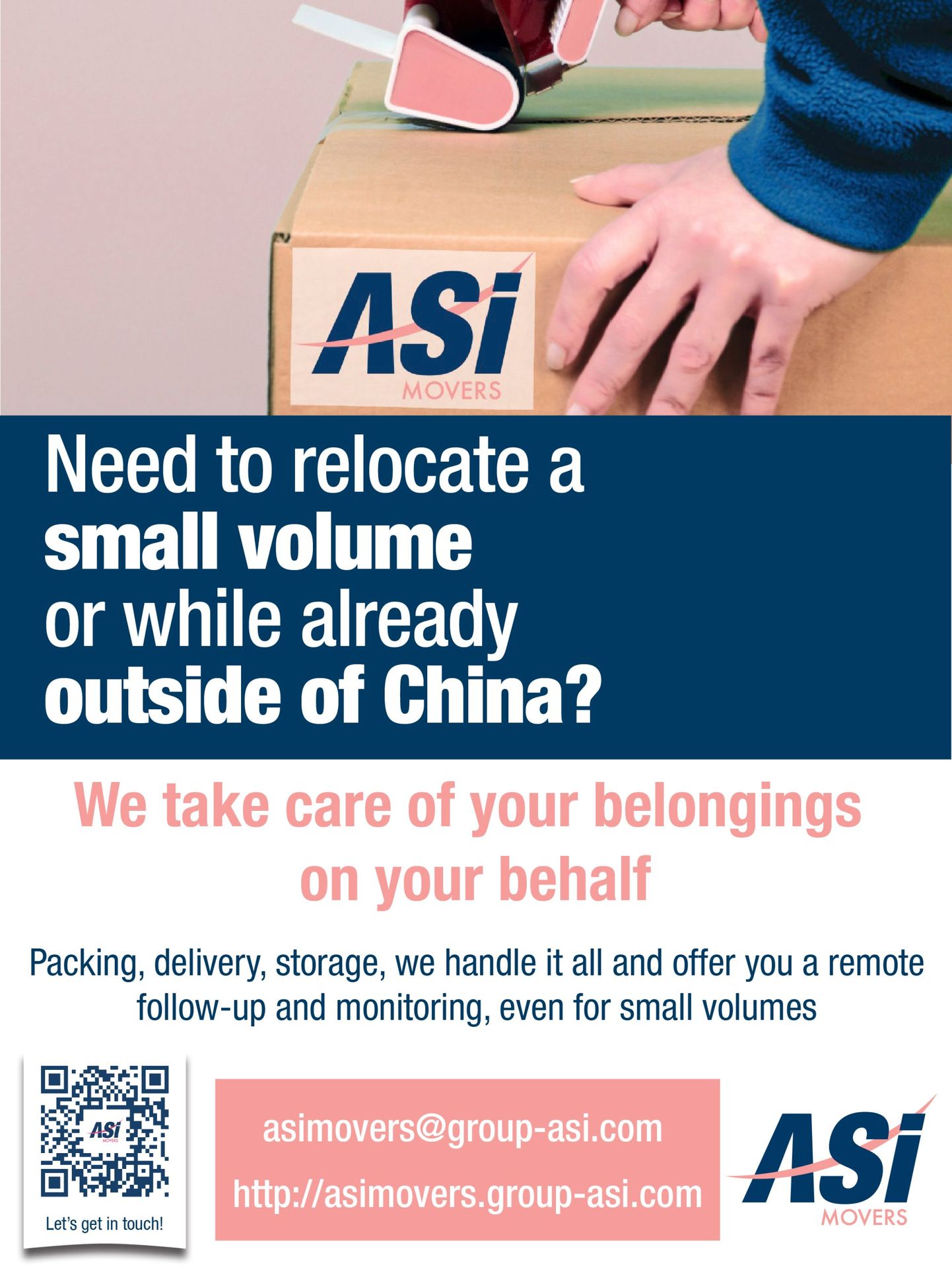Guilt, as defined in psychology, is an emotional experience that occurs when one believes – accurately or not – that one has compromised one’s standards of conduct or violated universal moral standards, and thus bears significant responsibility for that violation.
More simply put, guilt can be understood as a social glue that drives us to be mindful of others and take their feelings into account. To paraphrase Sartre talking about shame, guilt is the guilt of oneself in the gaze of the other. The other - and thus his gaze, feelings, and opinions about ourselves – can either be real or just a projection.
In either case, the effects on the way we feel and act are real. It can end up paralyzing us through resentment, avoidance, or reluctance to enjoy life. Recently, many expats have spoken about feeling guilty about their condition, for various reasons. As stated, if not acted upon, this guilt can easily hinder expats’ mental health, as well as professional and personal accomplishments.
Today, ASI Movers takes a look at what expat guilt is, its various roots, as well as the many ways one can solve or overcome this guilt in each case.
The Guilt Toward Those Who Stayed Back Home

This one might be the most common. Many people living abroad have had to answer the question “why are you leaving?”, received texts from relatives directly or indirectly making them feel guilty about doing it or not visiting as often as they should. This guilt is fueled by the feeling of “not being there” for important events, rough times, or more simply for the nonetheless important daily life.
Since even the so-called “guilt trips” back home feel a bit bitter, no matter if the others blame you or not, this guilt is still at the back of your head, how to not only overcome this feeling but solve the root of the issue? Obviously, the answer differs from person to person.
One way of avoiding it is to take a step toward those back home and ask them what they expect to share with you during your visits, or even when you are away. Is it regular calls and thorough life updates? Participating in family reunions? To walk down memory lane by visiting places where you shared memories? To enjoy simple things like cooking together? It will help you and your close ones share quality time that you know is enjoyed by both.
If this doesn’t solve the issue or if you feel the others are too demanding, remember that making others happy at your own expense is not sustainable. Compromise is everything when it comes to relationships, no matter what they are, and these compromises are based on communication. Even if the first step toward each other might be hard, remember that if some people resent you for leaving, it’s because they care. Thus, seeing you happy is also part of their happiness, they might just seek to be included in it.
Guilt Surrounding Social Inequity

In many countries, being an expatriate means that your living standard is higher than the one of a smaller or larger part of the population. When unused to it, you might ask yourself: why do I have these privileges compared to some locals since I am not even from here?
Realizing your privileges is an important step, but it shouldn’t paralyze you or make you withdraw from the reality of the country you live in. Educating oneself about the latter is key. Giving back in the way you find fitting can also help with charity work, going to the local market, and supporting the vendor instead of resorting to big foreign supermarkets for instance. In these situations, feeling good about yourself comes second: you feel this guilt because you realize your privileges, and make them purposeful to others by educating yourself and acting upon the social inequity you realized existed.
The Guilt Surrounding Your Living Situation

Some expats can feel guilt regarding their living situation i.e. the apparent comfort of their lifestyle. Expat packages, nice apartments, having a housekeeper, traveling, living on your companion’s income and not working yourself, or more simply being able to have a job while the job market back home is saturated… In many cultures, hard work is rewarded, and easy lives are frowned upon as undeserved. This can fuel guilt for what you have compared to what you would have had if you had lived a normal life back home. In an article for The News Lens, Nicholas Haggerty quoted a friend saying that “he himself is an economic refugee, only able to have a successful career in Taiwan after his dreams crashed on the shoals of the brutal academic job market in the U.S.”, which perfectly reflects how such a feeling of guilt can emerge.
As stated before, guilt is something you create on your own, and which is directed at considering others’ feelings and opinions about your situation. As such, it is very likely that others will not see your living situation the way you do, or see you as underserving of what you have. It is key to look at your path with an unbiased eye, at the work you have put into your expatriation, the sacrifices you have made, the efforts that have brought you where you are as well as the opportunities you have been able to seize.
This kind of guilt can also be fueled by the feeling of not doing enough. If it is your case, you might want to commit to activities you think are purposeful and which, as such, will make you feel deserving you what you have.
Talking about this feeling with understanding people is also key. If you feel like friends and family back home wouldn’t, the local expat community or dedicated Facebook groups can be the right place for you to do so. People living the same lifestyle in the same environment most likely have experienced this feeling and will thus be able to empathize and maybe even give you some guidance.
The Guilt Over Things You Feel You Should Do But End Up Not Doing

When one moves abroad, it’s always with great plans in mind. More often than not though, you end up not learning the local language, not participating in events, not doing all those cool things that were on your bucket list, and not taking advantage of the moment. This guilt is related to feeling you are missing out and not seizing the opportunities.
It’s easy to forget that, apart from your exciting expat journey, you still have obligations and a normal life, and that expatriation is a mentally tiring process. First, everybody needs time to settle down and find their marks in a new place before doing all the exciting things they have in mind. It’s important to give yourself time. Second, planning on traveling every weekend, participating in all the events that are offered to you, on experiencing every bit of the local life, is overlooking the fact that life abroad is very much alike to life back home. You still have chores to do, stress to deal with, administrative work to take care of, and rest to allow yourself to take. As such, making less ambitious but more sustainable plans is key.
Nevertheless, it is also important to not indulge in the settling down state, which can be very comfortable at first. Listen to yourself but also give yourself the small impulses that push you to make the great plans you have been delaying for weeks.
As for everything, it’s a question of balance, in this case between self-care and getting out of your comfort zone. It’s very likely that the more you go out there, the more your comfort zone will expand, and doing these things will become your routine.
The expat guilt is protean and easily triggered by a wide array of elements. Summed up, the expat guilt is rooted in the fear of being a “bad expat”. Many have experienced these conversations with fellow foreigners about what an expat should and should not do. Not knowing the language, having only a superficial knowledge of the country, taking the expat privileges for granted, and being inconsiderate of the feelings of others (the locals and the ones back home) are the main characteristics of this “bad expat”.
However, feeling this guilt demonstrates the sensitivity of the one bearing it, as well as the will to change. In his article in The New Lens, Nicholas Haggerty also urges expats to change the view they have of themselves as migrants. The bad expats “are here to live out the middle-class lives that they were born into but are now unable to live back home” says Nicholas Haggerty, or at least they are thought by many to do so. He argues that we should reject the idea that access to healthcare, housing, and basic material security are privileges for the deserving, which implicitly means that some migrants are more deserving than others. He concludes that any decent society should provide the above-mentioned “privileges” and advantages. This means that expats should not feel guilty about enjoying them, yet should however be aware of what they have and mindful of others.

Expatriation is not always as mentally easy as it may seem to some. It actually requires to adapt the way you think and act on a daily basis. At ASI Movers, we dedicate ourselves to make your relocation process the easiest and smoothest possible, because there is so much more in your mind that just moving your belongings!
Sources:
- The New Lens: https://international.thenewslens.com/feature/covid-personal-essays/135676
- No Longer Native: http://nolongernative.com/expat-guilt/
- WSJ: https://www.wsj.com/articles/BL-272B-1275
- Expat.com: https://www.expat.com/fr/expat-mag/3652-quest-ce-que-la-honte-des-expatries-comment-la-reconnaitre-et-la-surmonter.html
Photo credits:
